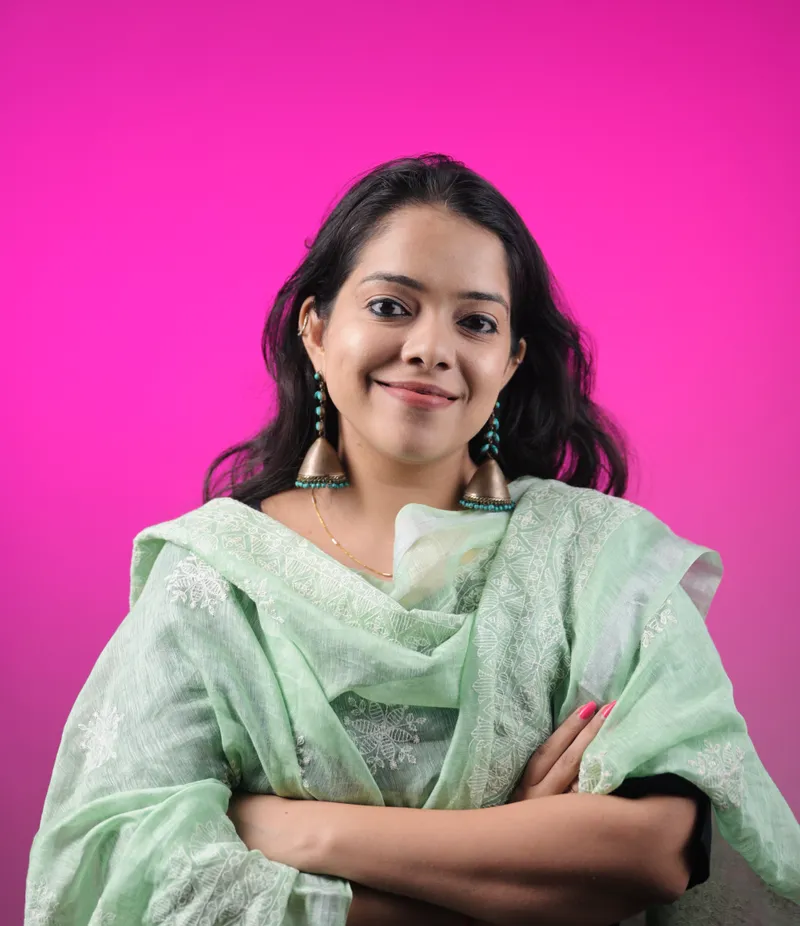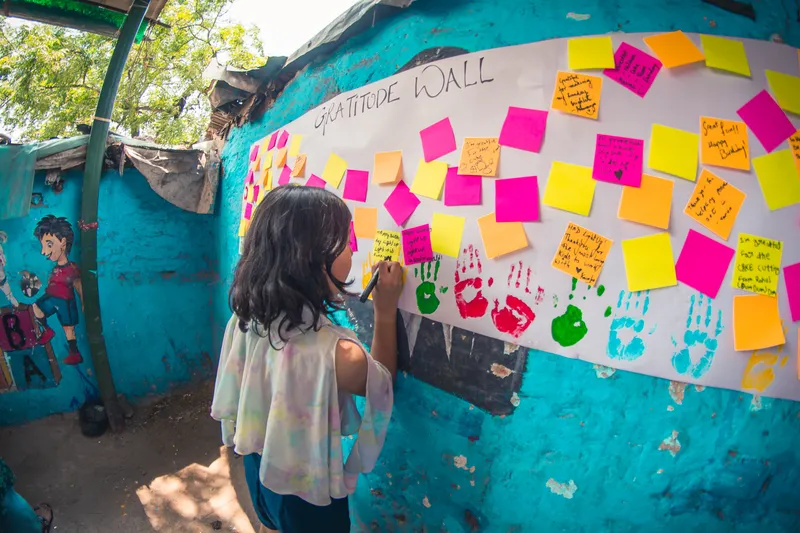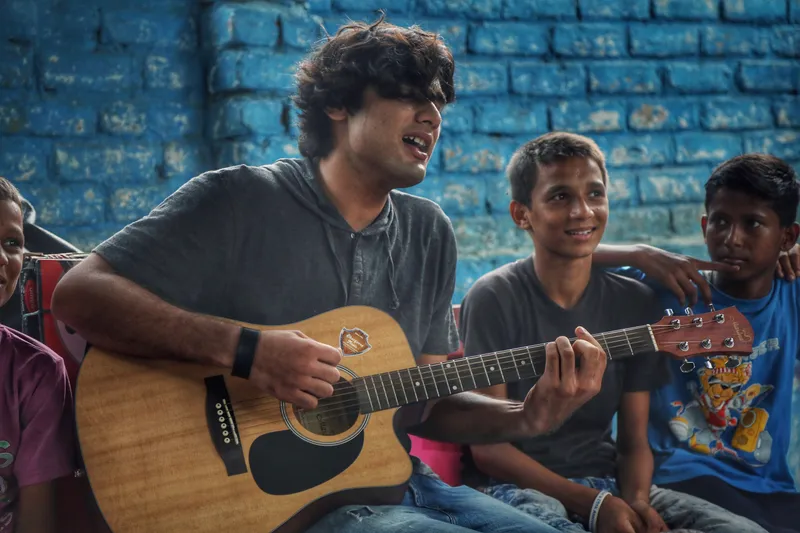Rising from ashes: How Project Phoenix helps young adults develop skills to navigate the world
Delhi-based Project Phoenix works with young adults in slums, children’s homes, and red-light areas to break their intergenerational trauma and develop relevant skills to navigate the world.
Agency and confidence—were what 21-year-old Tanisha Gandhi felt when she embarked on her first flight from Delhi to Mumbai for job orientation.
Growing up in a childcare institution, Gandhi never felt these emotions before in her life. She had no clue about bullying and body image issues or had any discussions regarding her future or mental health.
She did not know what to do, how to earn money, get further education, or navigate the world on her own. Understandably, she was clueless about her next steps after she finished 12th standard.
“I had no idea what bullying was or the impact body image could have on my life. I had no self-esteem, and I didn't bother to even think about my identity. I was a shy child who kept her emotions to herself,” she tells SocialStory.
Gandhi is among other young adults who are a part of Project Phoenix, run by Juhi Sharma, under her NGO Light Up (Emotions Matter Foundation)
Conceptualised in 2021, Delhi-based Project Phoenix grew into a comprehensive 10-month-long programme in 2022 and works with young adults in slums, children’s homes and red-light areas to break their intergenerational trauma and develop relevant skills to navigate the world.
“Through therapy, I learnt the importance of opening up and practising self-care. Expressive arts like dance and drawing helped me find self-expression and build a lot of confidence. In this journey, the organisation’s team has helped me in every way possible,” Gandhi says.
After working as a Project Coordinator in an NGO, Gandhi is planning to pursue a master’s in psychology.

Juhi Sharma
Tackling mental health
“Mental health cannot be seen in isolation; it coexists with caste, religion, gender, poverty, understanding their identity, justice lens, and agency, among other concepts. At Project Phoenix, we take a holistic approach incorporating social-emotional learning, trauma-informed therapy, safety sessions, and parent sensitisation skills to break the generational trauma and build skills in young marginalised adults,” explains Juhi Sharma, Founder of Light Up (EMF).
Sharma says with transformative SEL (social and emotional learning), young people and adults build strong, respectful, and lasting relationships to engage in co-learning.
It facilitates critical examination of individual and contextual factors that contribute to inequities and collaborative solutions that lead to personal, community, and societal well-being.
The project helps young adults from marginalised communities build skills like problem-solving, understanding their identity, and agency, among other concepts.
For instance, she says, negotiation is an alien concept to these people, but it is a necessary skill. To address this, the team has structured a three-session process.
In the first session, we discuss the concept of negotiation and its importance. The second session focuses on understanding how negotiation comes into play in daily life, where participants identify specific areas in their lives where negotiation can play a crucial role. In the final session, they engage in games and activities designed to build and enhance their negotiation skills.

The project phoenix is a 10 month long programme
For the programme’s one-on-one trauma-informed therapy sessions, the project has partnered with an organisation, I AM Wellbeing, which provides therapists for the sessions.
It uses experiential art forms, including dance, storytelling, theatre, and music, to provide the participants with a medium to cope with their emotions and build confidence.
Project Phoenix’s safety sessions consist of 10 curated sessions spanning over a year, equipping youths with essential insights and skills across various dimensions of safety.
The programme addresses physical safety, relationship safety, sexual safety, digital safety, and financial safety, ensuring participants are well-versed in recognising and effectively responding to situations that could potentially threaten their well-being.
Speaking of the parent sensitisation sessions, Sharma says, “Through a series of targeted interventions, the programme seeks to empower parents with the tools and knowledge to create a nurturing and supportive environment for their children, thereby breaking the cycle of intergenerational trauma.”
Project Phoenix’s programmes are operational in GB Road, Sanjay Camp, an urban slum in Delhi, and Jamghat, an NGO in Delhi-NCR. At present, the project is funded by EdelGive Foundation, Edelman, and high-net-worth individuals.
Each month, it organises three transformative SEL training sessions, two trauma-informed therapy sessions, one safety session, and one session for parents. The first batch had 15 people, while the second had 30.
The beginning
Sharma has diverse academic experiences to her name. She is a BCom graduate from Delhi University, an MA holder in fashion marketing from Pearl Academy, and an Entrepreneurship and Innovation Fellow from Stanford Graduate School of Business.
But beyond work, Sharma has always been moved by community work. She has been engaged in various development projects in the areas of water, sanitation, and hygiene (WASH), education, and health.
This passion for social work motivated her to quit her five years long corporate life in firms like Edelman India and Xander and start Lights Up in 2017.

Project Phoenix’s programmes are operational in GB Road, Sanjay Camp, and Jamghat, Delhi-NCR.
Initially, NGO Light Up (EMF) worked with children of low-income government schools to incorporate emotional intelligence into the school curriculum to improve children's social skills and academic performance.
However, during COVID-19, its grassroots work went through a challenging phase, and it continued its relief work in urban slums, GB Road, and Jamghat.
Soon, she realised that young adults valued livelihood, food, and shelter over their mental health, and social-emotional learning took a backseat.
“Youth with adverse childhood experiences have seen poverty, bullying, abuse, and violence are at a high risk of developing mental health challenges. Many do not have access to education or livelihood opportunities. This jeopardizes their mental health and ability to lead a dignified life,” Sharma adds.
This realisation led Sharma to start Project Phoneix in 2021.
In 2022, the organisation qualified for a mentorship programme with Ember Mental Health, United Kingdom, to form a refined programme to help young adults from marginalised communities.
"We ensured equal participation from the community—involving parents and students, our partners, and experts—in continuously evolving our programme scientifically," she adds.
In the same vein, she says that many of these people did not understand mental health. “Many used to say that therapy toh pagal jaate hain (insane people go for therapy),” she adds.
She says it took time and consistent efforts to break the stigma and build a trusted relationship.
While the organisation provides training for 10 months, it does not offer aftercare as it is not financially viable. “This is capital-intensive work, and till we raise funds, we plan to take it slow,” she adds.
Edited by Suman Singh








